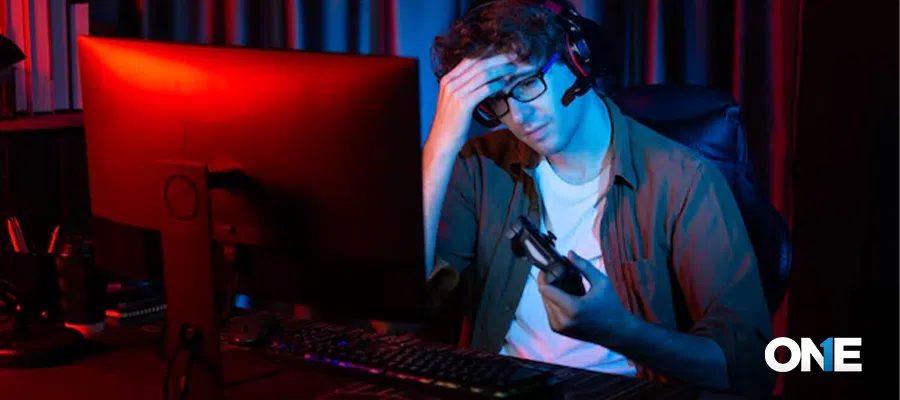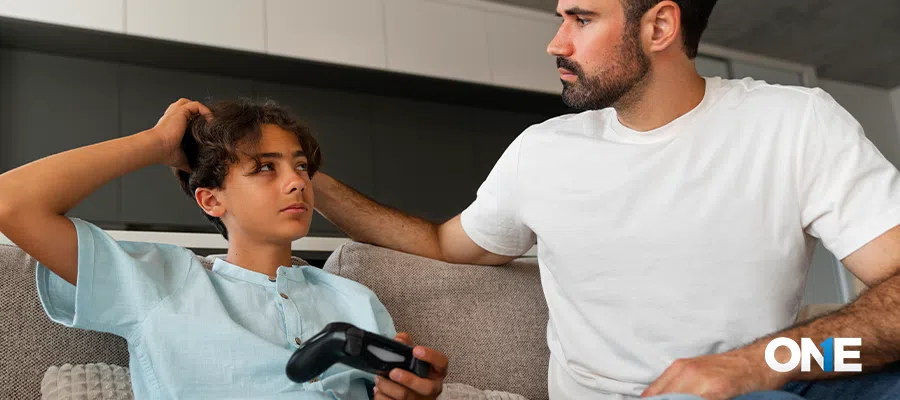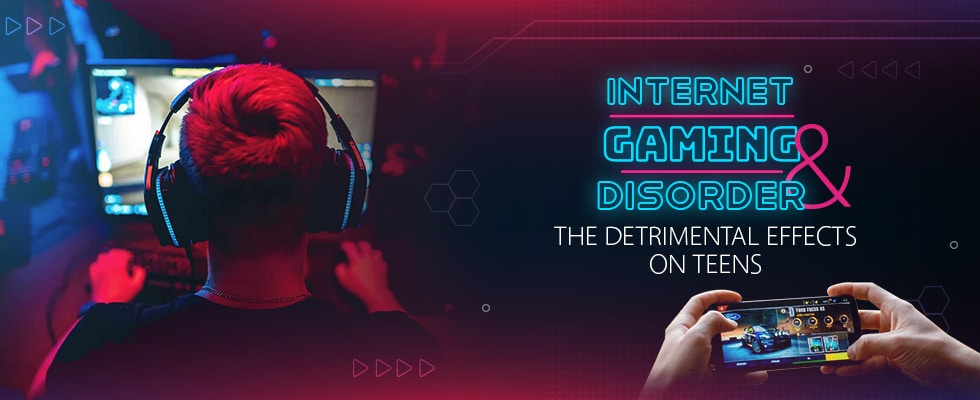Internet Gaming Disorder (IGD) has become a talk of the town over the last several years. You may have a question in your mind that why is it so? Well! You need to put down your cellphone and see around for a while, and you see people walking on the streets, on bus stations, and even on the busiest roads of the City people staring deep on their small screen.
It is not a wild leap to think that plenty of technology users, young males, and females, in particular, have been fallen for “Call of Duty” or “World of Warcraft” and unable to get up, but when they need to have something for their stomach.
The young generation has stuck in video game addiction on digital phones and computing devices. You may have seen your teens sleeping on the keyboards and with their digital phones in their hands. Even if they are capable, they could use their friends for their breath and use them to go outside in the park and do exercise for them.
The WHO (The World Health Organization) has added the “internet gaming disorder” into its psychiatric diagnosis, but the reaction is yet a silent one.
What is Internet Gaming Disorder?
Internet gaming disorder is known as the continuous and regular involvement with video games that could lead to educational and routine work distractions, according to the APA (The American Psychiatric Association). In addition to that, it is a kind of tentative psychiatric disorder that requires further research and study.
The internet game disorder is a kind of pattern or routine of behavior, be it online or offline gaming behavior, and we are discussing digital or video games. Online game playing has some significant characteristics. One of them is impaired control over online gaming.
The second one is that the behavior takes precedence over the daily activities and interests of a person to the extent that it results in impaired functionality or distress.
The video game playing keeps going irrespective of the outcomes. Though not everyone is involved in gaming behaviors, it is critical to emphasize that internet gaming disorder does not equal gaming behavior.
The youngsters have issues of playing online games on their digital devices. It has detrimental effects on their lives –school grades issues, social life difficulties, mood swings, Dr. Clifford Sussman, a psychiatrist in Washington in an interview to The New York Times.
He used to of treating compulsive gaming issues among teens with psychotherapy. It is not necessary that what you name it, but the point of interest is to give your kids the kinds of tools that can control their bad habits, he further added, to integrate the technology into their lives better than ever before. There is a very thin line between habit and addiction at the end of the day becomes a disorder.
Warning Signs of Internet Gaming Disorder Parents Must Not Ignore
The video gaming disorder is continuously becoming a dominating online parental issue for parents, and it has serious detrimental effects on the whole life of a young person involved in online gaming disorder. That’s why; it has become a talk of the town for parents and families.
Therefore, parents have to remain attentive to how much time kids have spent on phones, installed video games, and in what circumstances time has spent on the internet gaming.
Furthermore, Parents should know that to what extent the online gaming of the children is disrupting other curricular and extracurricular activities of their child and how your child is functioning at school, university, family members, as a friend, a person with the previous different interests.

10 Signs that Teen have Internet Gaming Addiction
- Teens who have an addiction to internet gaming issues always think about playing the next game once they have played the previous one, and playing video games becomes a dominant activity in their life. They are always preoccupied with online games.
- Kids and Teens usually have withdrawal issues at the time when parents don’t let them play games over the internet, phones, or on PCs. They show signs of anger, sadness, and anxiety.
- The tolerance factor becomes lower, and they always prefer to spend most of their time getting engaged in games.
- One of the most important signs is the loss of interest in daily life activities, relationships, hobbies they have adopted previously, and many more.
- Teens who have internet gaming disorder are unable to reduce their participation in online games.
- They used to playing games on their phones online and continued playing games online despite they are fully aware of the fact that it could lead them towards health problems.
- Excessive participation in video games on the internet makes teens lose significant relationships, education, and even career opportunities.
- Teens start deceiving their parents and therapists regarding the time they spend on gaming online.
- Children play video games to get rid of mood swings and to get relief from anxiety and helplessness.
Internet Gaming Statistics in 2025-2026
According to the latest survey statistics, almost 3.6 billion people used to play internet games, and more than 201 to 205 million in the United States. IDG or internet gaming disease is affecting 1-10% of Europe and North America. There was a study held in the UK, US, Canada, and in Germany, from 0.3% to 10% of the population of different ages have IGD diagnosis. That represents roughly 40-45% of the global population, and about 60–62% of people with internet access.
- According to a Nationwide survey of “internet addiction” in Japan, and plenty of samples that pointing out that IGD ranged from 0.7% to 27.5%.
- The study conducted in Norway says that 1.4% of samples have yet to reveal information about addicted online gamers.
IGD Stats with Respect to Geo-Location
- More than 56% of Americans play online games, and 45% of Europeans have played video games in their lives. In addition to that, 50% of Norwegians have a gaming habit.
- More than 10% of the children in Asian countries are addicted to internet games, in Singapore
- According to a study conducted in Hong Kong, it was found that an average of 13.9% of male teens spend at least 20 hours a week on cellphones and PCs to play video games.
- However, in South Korea, internet gaming had become a national crisis 600,000 children had IGD issues.
Gaming Disorder Among both Genders
According to a private psychiatrist in Boston, says more than 10.4% children and teens are addicted to online games, 10-12% are males, and 6-7% are young teens. Females are far more addicted to cell phones than men. Female gamers now make up roughly 45–48% of the global gaming population. In many sources, 60–79% of gamers play primarily on smartphones.
The “average gamer” is often around 10–34 years old, highlighting that gaming is not only for teens/young adults.
A new study says gender breakdown through IGD is quite balanced than the previous ones. Almost 10.8% of internet addicts are more likely to become internet gamers, of which 11-12% are young teens, and others are young male boys.
- Young males ages 18-34 are more likely to get IGD (internet gaming disorder).
How Parents Can Protect Teens from Internet Gaming Addiction

We have stated that there is a thin line between a habit and an addiction. So, parents have to protect teens from internet gaming addiction. Therefore, parents have to set parental control on kids’ and teens’ phones, PCs, and other devices. Parents can limit the screen time of their children at the time when they are going to play games online and develop IGD.
You can use TheOneSpy parental monitoring software to fix the time frame when they can play games over the internet and when they cannot. Parents can install parental control software on their teens’ devices.
TheOneSpy Screen time feature enables parents to decide when they are allowed to use digital devices and when they are not. You can schedule a time for loved ones. Either you allow them to play games on the internet for a specific time limit, or restrict them. You can forbid children whether they can play games on the internet or not. Parents can go to the TheOneSpy software online dashboard and activate the screen time.
TheOneSpy’s screen recording feature captures screen activities happening on the target device. It allows parents to see exactly what’s being viewed. It records visuals discreetly, stores them securely, and helps users monitor browsing, chats, apps, gaming, and digital behavior with complete clarity for improved safety and accountability.
Conclusion:
Video gaming disorder is real among youngsters in particular. Therefore, parents should impose restrictions on the use of digital devices for online gaming rather than consulting with the psychiatrist in the long run. You can unplug your teens from internet gaming using the screen-time tool of parental control application. It enables your child to adopt a balance both on the internet and real-life activities.







